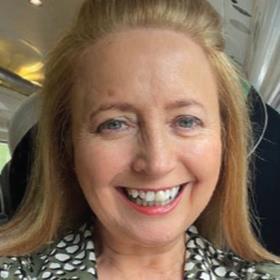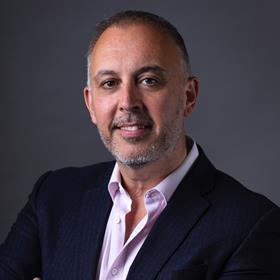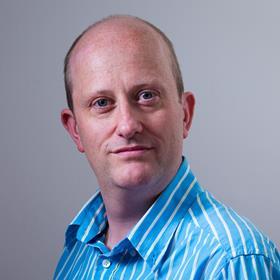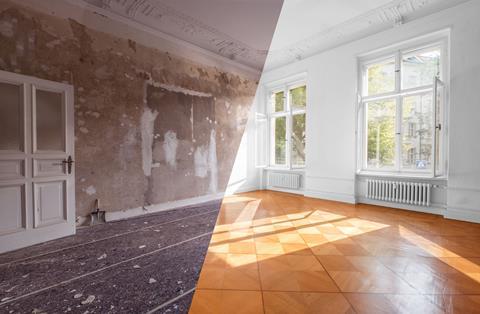Last year’s divestment from facility services provider ISS was the biggest change in decades for disaster recovery and restoration specialist Rainbow Restoration. It was a buy-out deal that many of the firm’s franchisees invested in themselves.



Property Week recently sat down with CGRF chair Noreen Hughes and Rainbow managing director Mark McMullen to find out what the new ownership structure means for customers, and what we can expect to see from a reinvigorated business over the months and years to come.
Andy Saunders: What were the motivations behind the buyout from ISS last year?
Noreen Hughes: The key reasons we divested from ISS were because we wanted to control our own destiny – to be more customer centric – and to build upon the Rainbow Restoration brand in the UK, which had become slightly diluted after 17 years under the corporate umbrella.
We’re a franchise business and we have to deliver a consistent service across our 51 branches – we are committed to all experiencing the same excellent service across the UK, so we all must have the same service standards and deliver them in the same way to every customer. That’s something that can struggle when you are part of a large corporation.
It took 15 months to get the deal over the line. Between us, the other board members and I spoke to every franchisee at least once, and it was amazing how many of them stepped forward to collectively purchase Rainbow Restoration in the UK. The majority of our franchisees took part in the buyout, effectively becoming franchisors.
Mark McMullen: It’s extremely rare for franchisees to step up and purchase the franchising business. The fact that so many did really demonstrates the belief they have in the future of the Rainbow Restoration brand and our markets. It’s also a reflection of the strength in our group. In my 30-year career, I have not come across a stronger national operation.
Although I joined the company after the divestment, I think the reasoning behind it was very sound. The team wanted to put their frustrations behind them and be able to develop a fully customer-centric and sustainable strategy that will stand the test of time and be an attractive proposition for new customers – something that works for all stakeholders.
AS: What will the new ownership structure mean for franchisees and customers?
MM: Our franchisees are now a group of people who have a genuine vested interest in serving customers well and in the future of the organisation. They can focus on what really matters – our customers – without any corporate distractions. Our branches can be nimble and collaborate with each other, and we can all play to our strengths, like the fact that the scale of our network means we can take on any fire, flood or other peril event, and be in more places at once than any of our rivals in the disaster recovery and restoration market. That all adds up to some very positive changes in the customer experience.
NH: We can make decisions more quickly because we don’t have to refer up to the corporate board. That means there is a shorter route to action and culminates in time saved for our customers.
AS: Why is sustainability a central part of your plans?
MM: Firstly it’s because we actually care as humans. We’ve got children, nephews and nieces and we recognise the importance of protecting the planet for future generations.
But secondly it’s because it makes sound business sense. Increasingly we find that the sustainable choice is, in the long term, the most affordable choice.

Our clients also need sustainable supply chains and we have a duty to help them with that. We know from discussions with key clients that around 90% of their total carbon emissions are in their supply chains, and 70% of that comes from suppliers like us.
Doing nothing is not an option – we are committed to having science-based targets, and we are working with our own supply chain to develop more efficient and sustainable technologies such as remote equipment monitoring, and we are also training our technicians to make sustainability a key part of their decision-making process.
AS: How is the current economic climate affecting your customers?
MM: Our customers are very diverse and range from multi-billion-pound insurance companies through property firms and agencies to householders – some living below the poverty line – who’ve had a flood or a fire at home.
They are all under increasing pressure but the ways that pressure manifests itself are very different, so our people have to use empathy to recognise that and respond to it appropriately.
Cost is important but so is saving time. The pressure to minimise the time it takes a flood-or fire-damaged business to return to revenue-generating status is at a real high. Many small businesses in particular have less of a financial buffer than they did two or three years ago, and so when there is an incident, more and more of them have to consider their futures. The quicker we can get them back earning revenue the more likely they are to be able to survive.
AS: You joined in April, Mark. What have you been focusing on so far?
MM: In a word, listening. I spend a lot of my time talking to existing and potential customers, branch owners and team members because if I have a good understanding of their world I can position the Rainbow business to serve their needs better.
I’ve also taken the opportunity to have adult conversations with clients. To genuinely improve we must be prepared to challenge the status quo and resolve the big issues and I want to play my part in leading the necessary changes.
I’ve also been building up the team, so now we have a leadership team that is really fit for the future and already performing well. And our team are making great progress in developing a business that leads in terms of operation, product delivery, widening provision and innovation – 2023 is going to be an exciting year for Rainbow Restoration and our customers.
The combination of separation and support I get from Noreen and the other board directors is outstanding. They give me the autonomy I need to make decisions as MD but they also hold me to account for those decisions. It’s a relationship that is highly conducive to success.
AS: Noreen, what fresh qualities has Mark brought to the table?
NH: Mark is quite right that he is a good listener – we had 100 applicants for the MD’s role and that was one of the things that blew me away about him, because it’s a rare quality. His style is very inclusive and he is totally customer centric and on board with our vision. I can hardly wait for the success I know we’re going to have in future.
AS: What are your ambitions for that future?
MM: Our ambition is to more than double the size of our business over the next five years. We’ll achieve that through continued healthy partnering with the insurance sector, where we are lucky to already have some fantastic long-term relationships – but also by broadening our remit into other sectors such as construction, property management, housing associations, facilities management, government and utilities. We’ve enjoyed 3% growth in the second half of 2022 from these new sectors alone – that’s just the start.
NH: We want to be the partner of choice for all our clients, we want to be the employer of choice for our people and for me personally I want to be the franchise of choice, too. I want people to think “gosh, I really want to buy a Rainbow Restoration franchise because they are so good”.






























No comments yet